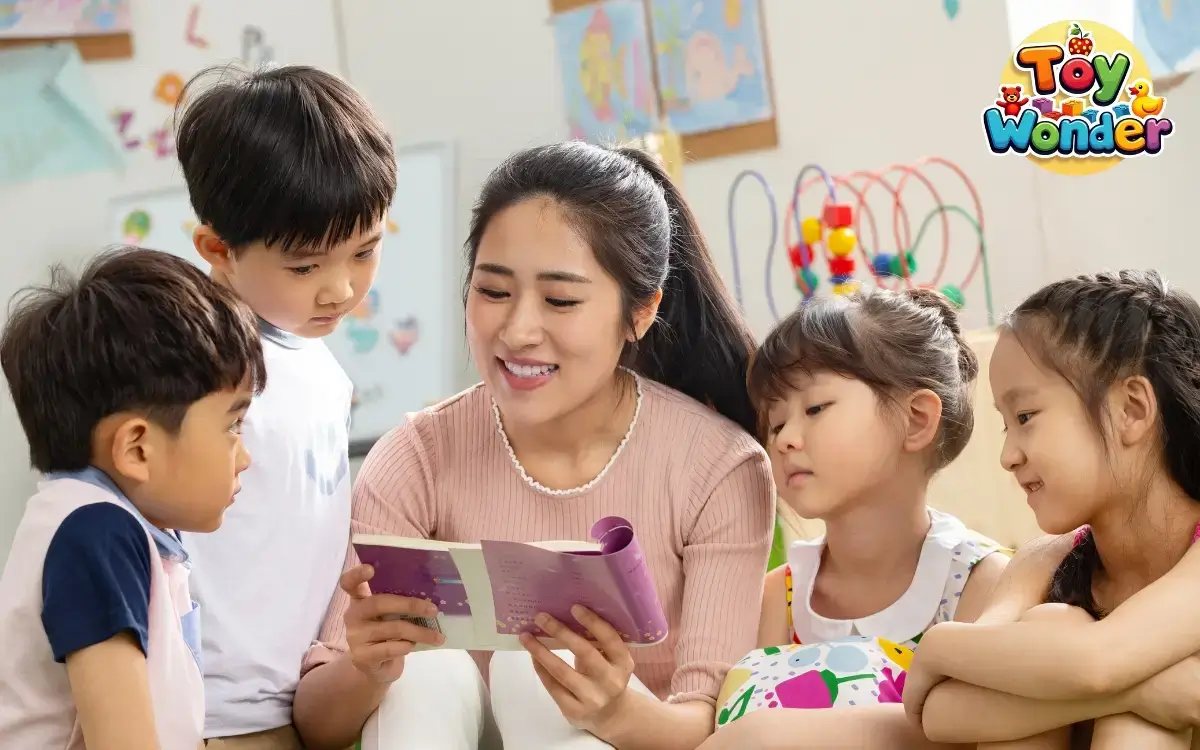Currently Empty: ₨ 0

Storytelling is a fundamental part of childhood, shaping a child’s imagination, emotions, and understanding of the world. It plays a crucial role in their upbringing, helping them develop valuable life skills while strengthening the bond between parents and children. In today’s fast-paced digital world, storytelling remains a timeless and powerful tool that nurtures young minds and fosters creativity. This blog post explores why storytelling is essential for kids, how supportive parents can use it effectively, and the benefits of good storytelling in developing positive habits in children.
The Role of Parents in a Child’s Development
Parents play a crucial role in shaping their children’s habits and values. The early years of childhood are a formative period where kids absorb everything they see, hear, and experience. Engaging them with storytelling not only enhances their listening skills but also provides them with lessons that contribute to their emotional and intellectual growth.
How Parents Influence Their Children Through Storytelling:
- Building Stronger Bonds: Storytime is a special moment between parents and kids, fostering emotional connections and trust.
- Teaching Morals & Values: Through stories, parents can instill values like kindness, honesty, and patience.
- Encouraging Curiosity: Stories spark a child’s imagination and encourage them to ask questions about the world around them.
- Creating a Love for Reading: Introducing kids to stories from an early age helps develop a lifelong love for books and learning.
Why Kids Love Storytelling
Children are naturally drawn to stories. Whether it’s a bedtime fairy tale, a fun adventure, or a fable with a lesson, kids find comfort and joy in storytelling. This is because stories transport them to new worlds, introduce them to fascinating characters, and offer them an engaging way to understand emotions and relationships.
Reasons Why Kids Enjoy Stories:
- Engaging & Entertaining: Stories bring excitement, suspense, and humor that captivate young minds.
- Relatable Characters: Kids connect with story characters, imagining themselves in different roles and situations.
- Interactive & Imaginative: Storytelling encourages children to visualize scenes, think creatively, and even participate in retelling stories.
The Benefits of Good Storytelling for Kids
Beyond entertainment, storytelling has many developmental benefits for children. A well-told story can teach important lessons, improve cognitive abilities, and foster social skills. Here are some key benefits:
1. Enhances Communication & Language Skills
Storytelling exposes children to new words, sentence structures, and ways of expression. This improves their vocabulary, comprehension, and speaking skills. Engaging with stories also helps children develop listening skills and understand the importance of effective communication.
2. Develops Good Habits & Positive Behavior
Stories with strong moral lessons can influence children’s behavior positively. Listening to tales about kindness, honesty, and empathy helps kids adopt these values in their daily lives. Parents can reinforce good habits by discussing the lessons learned from each story.
3. Boosts Imagination & Creativity
Stories transport kids to imaginary worlds, encouraging them to think creatively. Whether they’re picturing a magical land, creating their own storylines, or acting out characters, storytelling fosters innovation and critical thinking.
4. Improves Concentration & Focus
A well-told story captures a child’s attention, helping them stay focused for longer periods. This skill carries over to academics, helping children improve their ability to concentrate in school and complete tasks with diligence.
5. Strengthens Emotional Intelligence
Stories help children understand emotions, both their own and others’. They learn about different perspectives, empathy, and how to express their feelings in a healthy way. This emotional intelligence is essential for building strong relationships as they grow.
How to Make Storytelling Engaging for Kids
To make storytelling even more enjoyable and beneficial for children, parents can use the following techniques:
- Use Different Voices & Expressions: Make characters come to life by changing your tone and facial expressions.
- Incorporate Visuals & Props: Use picture books, puppets, or drawings to make the story more engaging.
- Encourage Participation: Let kids guess what happens next or act out scenes to make storytelling interactive.
- Make Storytelling a Routine: A consistent storytelling schedule, like bedtime stories, builds anticipation and excitement.
Final Thoughts: Storytelling as a Powerful Parenting Tool
Storytelling is much more than just an entertaining activity – it’s a valuable tool for shaping a child’s habits, imagination, and emotional intelligence. Supportive and caring parents can use storytelling to nurture their children’s creativity, communication skills, and moral values. By incorporating storytelling into daily life, parents can strengthen their bond with their kids while helping them grow into thoughtful and well-rounded individuals.
At Toy Wonder, we believe in the magic of storytelling. Browse our collection of storybooks and imaginative toys to make playtime more meaningful and fun for your little ones.




2 Comments
This is exactly what i was looking for, thank you so much for these tutorials
It would be great to try this theme for my businesses